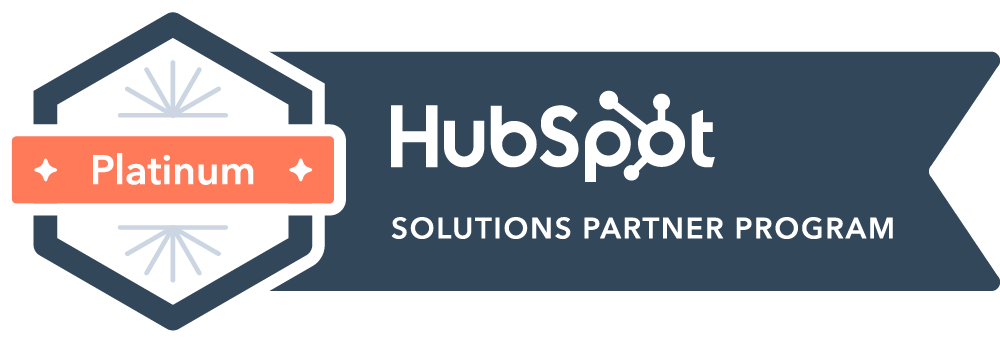

Content Writer for Whistle with multidisciplinary experience spanning over a decade.
At Whistle, we provide some of the best training in the world, using some of the most advanced techniques available today. Why? We believe that an educated SDR is destined to be successful. Investing in one’s education is all about the ‘long game’ and reaping the rewards down the line. We look at why education plays such an important role in the development of an SDR and the organization as a whole.
Education is often considered the key to success in life. It offers numerous benefits that go beyond just acquiring knowledge in a specific subject. A quality education provides individuals with personal development opportunities, enhances their critical thinking skills, and equips them with the necessary tools to navigate through various challenges in life. Education also helps individuals develop strong time management skills, instills discipline, and promotes a sense of responsibility. Moreover, education opens doors to various career opportunities, enabling individuals to pursue their passions and interests. It empowers individuals to become lifelong learners and continuously grow and evolve. In today’s rapidly changing world, where knowledge is paramount, having a solid education is a powerful weapon that can pave the way for personal and professional success.
Education is a powerful tool that offers opportunities for personal growth, exposure to diverse perspectives, and the acquisition of new knowledge and skills. Through education, individuals are able to expand their horizons and develop a deeper understanding of the world.
– Personal Growth: By engaging in formal learning, individuals are challenged and pushed out of their comfort zones, which fosters personal development. Education encourages individuals to explore their interests, passions, and talents, ultimately leading to a more fulfilling and well-rounded life.
– Exposed to Diverse Perspectives: Learning alongside individuals from different backgrounds and cultures allows for a more comprehensive understanding of the world. This exposure broadens horizons and encourages individuals to think critically about various issues, ultimately promoting empathy, tolerance, and acceptance.
– Navigate Through Life Successfully: Through formal education, individuals acquire valuable skills such as problem-solving, critical thinking, and effective communication. These skills not only enhance professional prospects but also contribute to overall personal growth and success.
Education plays a crucial role in developing personal skills that are highly valued by employers and essential for personal and professional success.
Effective Communication
Through various coursework, presentations, and group projects, individuals learn how to articulate their thoughts clearly, listen actively, and collaborate effectively with others.
Problem-Solving Abilities
By engaging in critical analysis, research, and problem-solving exercises, individuals learn to approach challenges with a solution-oriented mindset. They develop the ability to think critically, analyze information, and propose innovative solutions.
Critical Thinking
Education encourages individuals to question, evaluate, and analyze information from multiple perspectives. This skill is essential for making informed decisions, evaluating arguments and evidence, and adapting to new situations.
Adaptability
In today’s rapidly changing world, individuals must be able to adapt to new technologies, industries, and work environments. Education exposes individuals to diverse experiences and challenges, requiring them to adapt, be resilient, and embrace change.
Gaining a quality education is a key factor in achieving success on both a personal and professional level. It equips individuals with the necessary knowledge and skills to excel in their chosen fields, making it an essential foundation for lifelong learning and growth.
Attending reputable institutions that offer comprehensive and up-to-date curricula is advantageous for several reasons. Firstly, such institutions provide a high standard of education that ensures individuals receive a well-rounded and relevant education. This sets them apart from others in their field and gives them a competitive edge in the job market.
A quality education also opens doors to better career opportunities. Employers recognize the value of an education from a reputable institution, as it signifies a certain level of competence, dedication, and intellectual curiosity. Furthermore, individuals with a solid educational background are more likely to be considered for promotions, raises, and leadership positions.
Moreover, a quality education promotes personal growth and development. It nurtures critical thinking, problem-solving, and communication skills, which are vital in navigating complex situations and making informed decisions. It also exposes individuals to new ideas, perspectives, and cultures, fostering empathy, tolerance, and cultural competence.
Time management skills play a crucial role in the success of individuals pursuing an education. Effective time management allows students to prioritize their tasks, meet deadlines, and make the most out of their study time. It helps them stay organized and focused, ensuring that they can balance their responsibilities and achieve academic excellence.
By pursuing an education full-time while managing other responsibilities, individuals have the opportunity to enhance their time management skills. Juggling work or personal commitments alongside their studies forces them to find ways to allocate their time efficiently. This often involves creating schedules, setting realistic goals, and identifying priorities.
However, balancing education, work, and personal life can present its fair share of challenges. One challenge is finding the right balance between these various responsibilities. It can be difficult to allocate enough time for studying while also meeting work obligations and personal commitments. Additionally, individuals may face challenges with maintaining their motivation and energy levels, as fatigue and burnout could hinder their ability to manage their time effectively.
Access to online communities plays a crucial role in education by enhancing communication and collaboration among students and educators. These communities provide a platform where individuals can connect, exchange ideas, and seek support, regardless of geographical constraints or time zones.
– Share Resources and Ideas: Students and educators can upload and access educational materials, presentations, and study guides, making it easier for everyone to learn and grow. This collaborative approach fosters a supportive learning environment where knowledge can be shared and multiplied. Engaging in discussions within online communities allows students and educators to broaden their perspectives and gain new insights. By participating in forums or chat groups, individuals can ask questions, provide answers, and engage in healthy debates. These interactions not only enhance critical thinking skills but also encourage active learning and independent thinking.
– Networking Opportunities: Students and educators can connect with like-minded individuals, experts in their field, and professionals from around the world. This exposure opens doors to new collaborations, mentorship opportunities, and the chance to expand knowledge through diverse perspectives.
– Current Trends and Developments in the Field of Education: By following discussions, reading articles, and participating in webinars, individuals can stay updated and adapt their teaching or learning methods to the ever-evolving landscape of education.
Hiring individuals who have a genuine desire for personal and professional growth is crucial for the success of any organization. These employees are motivated, driven, and constantly seeking ways to improve themselves and contribute to the growth of the company.
When you hire people who want to grow, you are bringing in individuals who are not only dedicated to their own development but also to the success of the organization. They are eager to learn new skills, take on new challenges, and constantly push themselves to reach new heights. This mindset of continuous improvement leads to increased productivity, innovation, and overall success within the company.
Key qualities or characteristics to look for when selecting candidates who prioritize growth include:
– Proactive mindset: Look for individuals who take initiative and actively seek out opportunities for growth rather than waiting for them to come their way.
– Curiosity and a thirst for knowledge: Seek candidates who are curious about the world around them and are always seeking to expand their knowledge and skills.
– Resilience and adaptability: Employees who embrace change and are willing to adapt to new situations and challenges are more likely to grow and succeed in a dynamic work environment.
– Self-awareness and a growth mindset: Look for individuals who are self-reflective and can recognize their strengths and weaknesses, as well as those who believe that their abilities can be developed through hard work and dedication.
Investing in learning is crucial for both personal and professional growth. In today’s fast-paced and ever-changing world, acquiring new skills and staying up-to-date with industry trends is essential to remain competitive in the job market and ensure continued success.
By investing in learning, individuals can expand their knowledge and expertise, allowing them to take on new challenges and opportunities in their careers. Continuous learning enables individuals to develop new skills that are in demand, making them more valuable and marketable to potential employers.
Additionally, investing in learning helps individuals stay up-to-date with the latest advancements and trends in their industry. This knowledge not only enhances their current skills but also allows them to anticipate and adapt to future changes, staying ahead of the curve.
There are various ways individuals can invest in their learning. Attending workshops and conferences provides opportunities to network with industry professionals and learn from experts in the field. Online courses and certifications offer flexibility and convenience, allowing individuals to learn at their own pace and at a time that suits them.
Creating a collaborative culture within an organization is crucial for its overall success and growth. A collaborative culture promotes teamwork, innovation, and employee engagement, leading to improved productivity and a positive work environment.
Breaking Down Silos and Promoting Cross-Functional Collaboration
When employees work together towards a common goal, they can combine their diverse skills, knowledge, and perspectives to come up with innovative solutions and make informed decisions. This not only enhances productivity but also fosters a sense of camaraderie and support among team members.
Promotes Innovation Within the Organization
When employees collaborate and share ideas, they can collectively brainstorm and generate creative solutions to complex problems. By encouraging employees to voice their opinions and contribute their unique insights, organizations can tap into their full potential and drive continuous improvement and growth.
Increased Employee Engagement
When employees feel valued and included in the decision-making process, they are more motivated and committed to their work. Collaboration allows individuals to feel connected and part of a larger purpose, which boosts their morale and satisfaction, resulting in higher levels of productivity and retention.
Showing paths for growth within organizations is crucial for employee development and long-term success. When employees see clear opportunities for advancement and professional growth, it empowers them to take ownership of their careers and become more engaged in their work.
By demonstrating paths for growth, organizations can motivate and inspire employees to continuously improve and strive for excellence. When employees know that their efforts can lead to promotions, increased responsibilities, and new challenges, they are more likely to be motivated and committed to achieving their goals. This motivation translates into increased productivity and better results for the organization.
Additionally, showing paths for growth allows employees to see the value of their work and how it contributes to the overall goals of the organization. When employees understand how their contributions fit into the bigger picture, they feel a sense of purpose and fulfillment, which further drives their motivation and productivity.
To demonstrate opportunities for personal and professional development, employers can implement various strategies. These include providing clear career progression frameworks, offering training and development programs, establishing mentorship and coaching programs, and creating opportunities for cross-functional experiences and project assignments. Regular feedback and performance discussions also play a crucial role in helping employees understand their areas of strength and areas for improvement, enabling them to take necessary steps towards their desired growth paths.
At Whistle, our SDR team is constantly exposed to a learning environment. This makes them better able to adapt to a client’s needs and company culture. The ability to easily assimilate knowledge and apply what they have learned, makes them an invaluable asset to any organization.
Book a meeting with our account executives to find out more!


© Copyright – Whistle 2023